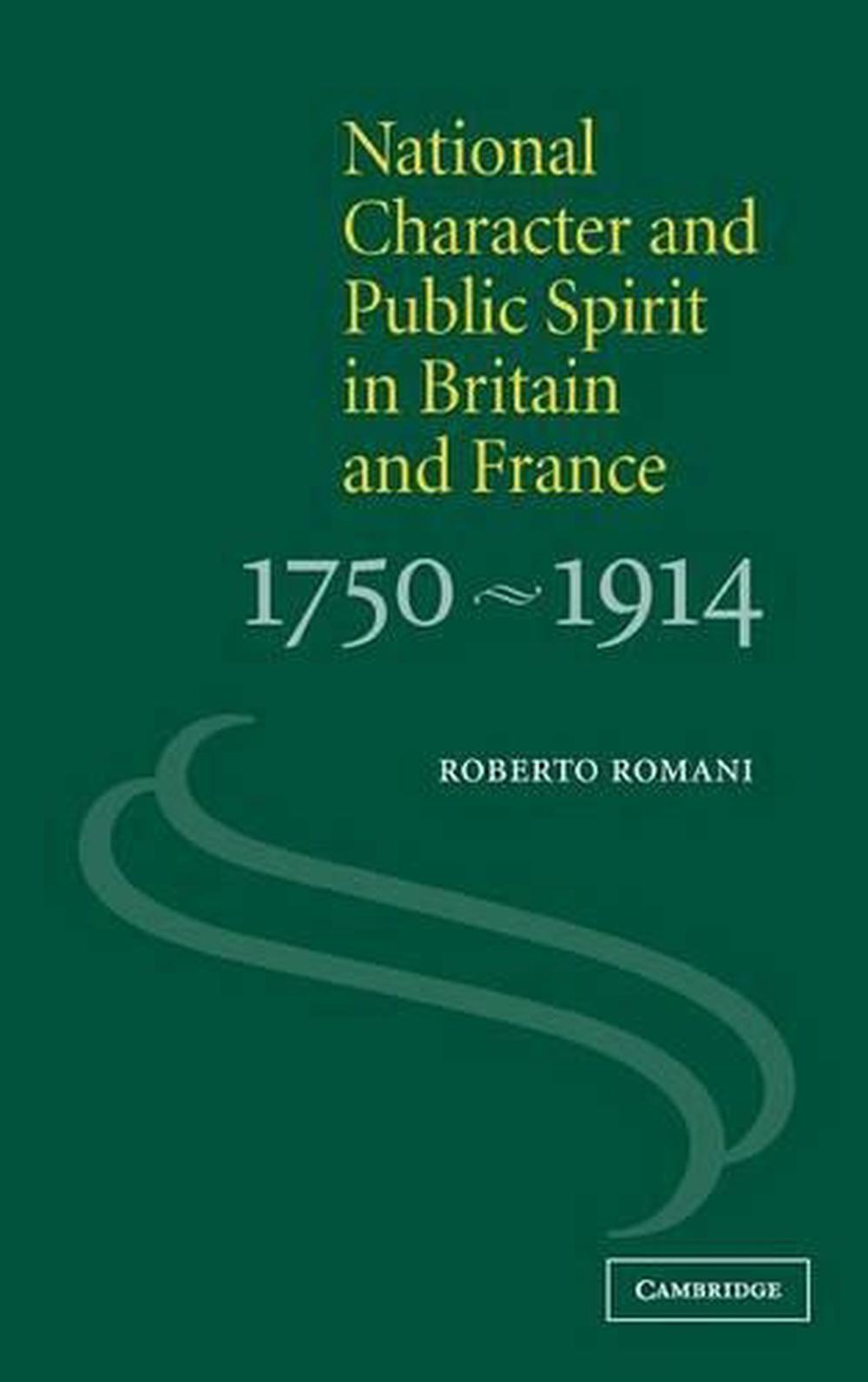
National Character and Public Spirit in Britain and France, 17501914
by Roberto Romani
Analysis of the concept of 'national character' in the intellectual histories of Britain and France.
Hardcover
English
Brand New
Publisher Description
In a work of unusual ambition and rigorous comparison, Roberto Romani considers the concept of 'national character' in the intellectual histories of Britain and France. Perceptions of collective mentalities influenced a variety of political and economic debates, ranging from anti-absolutist polemic in eighteenth-century France to appraisals of socialism in Edwardian Britain. Romani argues that the eighteenth-century notion of 'national character', with its stress on climate and government, evolved into a concern with the virtues of 'public spirit' irrespective of national traits, in parallel with the establishment of representative institutions on the Continent. His discussion of contemporary thinkers includes Montesquieu, Voltaire, Hume, Millar, Burke, Constant, de Staël and Tocqueville. After the mid-nineteenth century, the advent of social scientific approaches, including those of Spencer, Hobson and Durkheim, shifted the focus from the qualities required by political liberty to those needed to operate complex social systems, and to bear its psychological pressures.
Author Biography
Roberto Romani is Research Associate at the Centre for History and Economics, King's College, Cambridge.
Table of Contents
Acknowledgements; Introduction; Part I. 1750–1850: France: 1. All Montesquieu's sons: the place of esprit général, caractère national, and mœurs in French political philosophy, 1748–89; 2. After the Revolution: Staël on political morality; 3. From republicanism to industrialism and national character: Melchiorre Gioja, Charles Dupin and Continental political economy, 1800–48; 4. The French Restoration dispute over mores and Tocqueville; Great Britain: 5. Between Whiggism and the science of manners: Britain, 1750–1800; 6. British views on Irish national character, 1800–46; Part II. 1850–1914: 7. The demise of John Bull: social sciences in Britain, 1850–1914; 8. Durkheim's collective representation and their background; 9. Socializing public spirit, 1870–1914; Conclusion; Index.
Review
'Romani has written a first-class study of a fascinating and enduring problem ... this book asks fundamental questions regarding the relationship between morality and political freedom. By placing these debates in a context that is both historical and comparative Romani has laid bare the obstinate complexity of the problems posed by the notion of national character.' The European Legacy 'The content of the book is dense and detailed ... a significant contribution ...' American Historical Review 'The ambitiousness of its sweep through more than 150 years of Anglo-French intellectual history is easily apparent ... [it is] based on an impressively broad array of primary materials.' Stephen Heathorn, H-Albion 'Romani opens up new vistas on terrain that has become over familiar in some cases and remained obscure in others.' European Journal of Political Theory '... stirring and critical account ... Romani's wide-ranging, sufficiently argued, comprehensive study would be of respective interest to every historian of economic thought aspiring to a different reading of economic ideas against their intellectual and cultural context.' History of Economic Ideas
Promotional
This book offers an analysis of the concept of 'national character' in the intellectual histories of Britain and France.
Review Quote
"The work shows a good understanding of the work of a vast number of modern theorists and an impressive array of scholarship." Philosophy in Review
Promotional "Headline"
This book offers an analysis of the concept of 'national character' in the intellectual histories of Britain and France.
Description for Bookstore
Romani considers a distinction between 'national character' as a static and stereotype-laden concept, and 'public spirit' as a notion suggesting the necessity of certain qualities to operate free institutions. Many major authors of the period 1750-1914 (like Montesquieu, Voltaire, Hume, Millar, Burke, Tocqueville, Spencer, Hobson and Durkheim) are considered.
Description for Library
Romani considers a distinction between 'national character' as a static and stereotype-laden concept, and 'public spirit' as a notion suggesting the necessity of certain qualities to operate free institutions. Many major authors of the period 1750-1914 (like Montesquieu, Voltaire, Hume, Millar, Burke, Tocqueville, Spencer, Hobson and Durkheim) are considered.
Details

